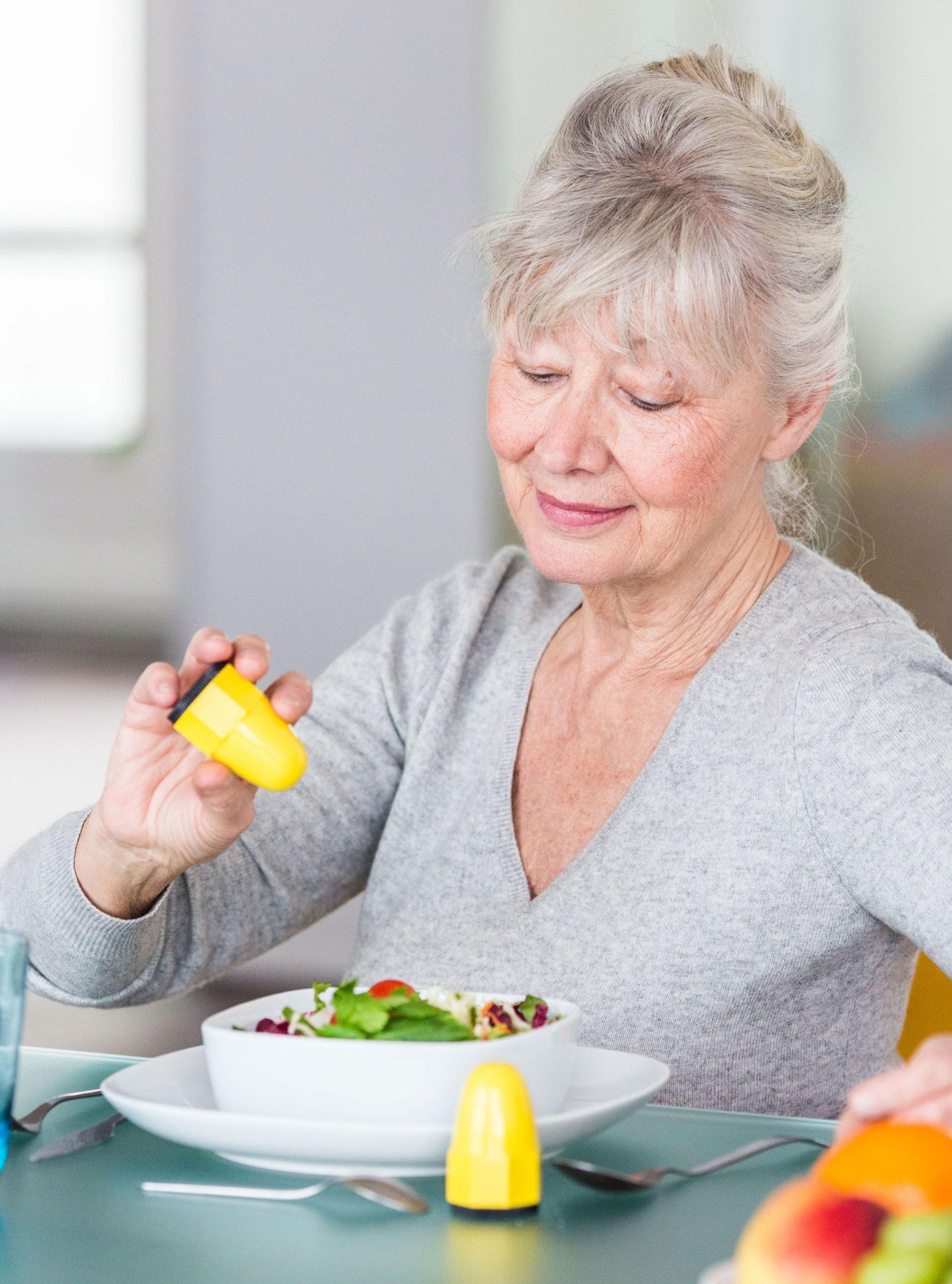Am I Eating Too Much Salt?

It's been linked from everything to high blood pressure to dementia, yet many of Brits are still eating far too much salt.
Salt undoubtedly makes food taste good, and is necessary for our bodies to function properly, but it's easy to consume in excess. Many of us eats well over the recommended daily intake of 6 grams (about a teaspoon); whether it's liberal sprinkling in your cooking and at the table, or eating processed foods, us Brits can't get enough of it, eating on average 8.1 grams.
Think you're eating too much salt? Here's what you need to know about the dangers of sodium and how to reduce your risk...
What is sodium? The salt we eat, otherwise known as sodium chloride, consists of sodium, chlorine and often anti-caking agents. Sodium makes up 40% of salt, and is a necessary element for optimal muscle and nerve function.
Sodium attracts water, so your body uses it to regulate the fluid in your blood, organs and tissues. When your body contains too much sodium, the kidneys remove it by producing more urine.
What happens if you eat too much sodium
Eating too much salt has long been associated with high blood pressure, something that around a third of the UK suffers from. It has also been linked to an increased risk of stroke, heart disease, osteoporosis and dementia.
Sign up for the woman&home newsletter
Sign up to our free daily email for the latest royal and entertainment news, interesting opinion, expert advice on styling and beauty trends, and no-nonsense guides to the health and wellness questions you want answered.
Symptoms of excess sodium include thirst, fluid retention (oedema) in the face (such as puffy eyes in the morning) and on hands, legs, ankles and feet, and headaches.
In extreme cases, a person can suffer from hypernatraemia (too much sodium in the blood) when they become too dehydrated. This can happen after vomiting, having a fever, doing too much exercise and consuming too much salt in food and drink. Look out for the following symptoms: irritability, muscle cramps, confusion, depression and vomiting. Hypernatraemia can lead to brain damage if not treated quickly.
The hidden sources of salt
According to Blood Pressure UK, around 80% of your daily salt intake comes from processed foods. Here are some of the worst culprits:
- Ketchup
- Tinned soup
- Stock cubes
- Gravy granules
- Soy sauce
- Mustard
- Pickles
- Yeast extract
- Ready-made sandwiches
- Some curry powders
- Ready meals
- Bread
- Bacon
- Biscuits
- Cheese
Salt is even lurking in places you wouldn't expect like cereal, tinned vegetables and blended coffee drinks!
How can I reduce my intake?
Reducing your salt intake doesn't mean reducing on flavour - try herbs, spices, olive oil, balsamic vinegar or lemon juice to inject flavour into your dish. If you're really missing salt, try low sodium options like Lo Salt. You can also reduce your salt intake by a fifth by omitting it from your cooking and resisting the temptation to sprinkle it over food at the table - taste your food first before reaching for the salt shaker.
When shopping, opt for low- or no-salt versions of your favourite foods. Check the label colours on the package; green means low salt (1.5g/100g). Is there such a thing as not enough salt?
Hyponatraemia occurs when there is too little sodium in the blood. This can be caused by drinking too much water (e.g. during strenuous exercise) and loss of body fluid through prolonged sweating, vomiting or diarrhoea. The use of some medications such as diuretics can also cause low sodium levels. Symptoms of hyponatraemia include headaches, nausea, vomiting, tiredness, muscle spasms and seizures.
-
 Considering a summer hair refresh? Demi Moore’s chic bob transformation is all the inspiration you need to book that salon appointment
Considering a summer hair refresh? Demi Moore’s chic bob transformation is all the inspiration you need to book that salon appointmentChop, chop, it's time to take a trip to the salon
By Sennen Prickett
-
 Helen Mirren just embraced Cartier's signature colour on her lips - and this easy trick will make it less intimidating to replicate
Helen Mirren just embraced Cartier's signature colour on her lips - and this easy trick will make it less intimidating to replicateWhen in doubt, do as Helen Mirren does and steer clear of matte formulas...
By Naomi Jamieson